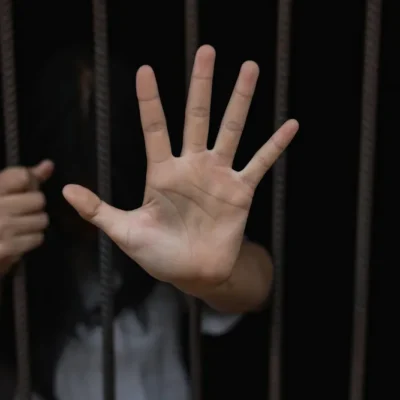
Not sure what to do when you’re pulled over by police? You’re not alone. Many drivers are confused about their rights in this situation.
We’ll answer the top questions about what you should and shouldn’t do during a traffic stop. Ready to learn how to handle the next time you see those flashing lights? Let’s dive in!
Understanding Traffic Stops
Traffic stops are a common occurrence on roads. Understanding your traffic stop rights and what to expect can help alleviate anxiety and ensure a smooth interaction with law enforcement.
When Can Police Legally Pull Me Over?
Police have the power to stop your vehicle if they suspect you’re breaking the law. But that’s not all. Even if you’re driving perfectly, they can still pull you over for a random breath test or a drug test. These broad powers mean you can be stopped at almost any time, whether you’re doing something wrong or not.
What to Expect During a Traffic Stop
When you’re pulled over, the first step is to remain calm and find a safe spot to stop your vehicle. Switch off your engine and, if it’s dark, turn on the interior light to make things easier for the officer.
Keep your hands where they can be seen, such as on the steering wheel, to reassure the officer of your intentions.
The police officer will usually come to your window and let you know why you’ve been stopped. They might ask for your driver’s licence, registration, and insurance details. Cooperate politely, and if you have any questions, you can ask them calmly.
Your Rights if You’re Pulled Over by Police
Knowing your rights during a traffic stop is crucial. While it’s important to cooperate with the police, it’s equally important to understand what you are and aren’t required to do.
Do I Have to Answer Police Questions?
During a traffic stop, your legal obligation to provide information is limitedAccording to Section 175 of the Road Transport Act 2013, you are required by law to:
1. Provide your name and address
2. Present your driving licence upon request
Beyond these requirements, you are not legally obligated to answer any additional questions. It is generally advisable to exercise caution in your interactions and avoid engaging in unnecessary discussions or debates with the police. Maintaining a respectful demeanour while asserting your rights is recommended.
Can I Refuse a Vehicle Search?
You have the legal right to refuse consent for a search of your vehicle. However, it is important to note that if the police have reasonable grounds to suspect the presence of illegal items in your vehicle, they may conduct a search without your consent.
If you’re unsure, you can politely state, “I do not consent to a search,” in accordance with vehicle search laws.
Rights Regarding Identification and Documentation
When requested by law enforcement, you are legally required to produce the following documents:
1. Driving licence
2. Insurance certificate
If you do not have these documents in your immediate possession during the traffic stop, you may be granted the opportunity to present them at a police station within seven days.
Interacting with Law Enforcement
How you interact with the police during a traffic stop can significantly impact the outcome. Following police interaction guidelines and remaining calm and respectful while being aware of your rights is key to a positive interaction.
Best Practices for Communicating with Police
Stay calm and be polite when interacting with police officers during a traffic stop. Keep your hands visible at all times and inform the officer before making any movements, especially if you need to reach for documents.
It’s best to avoid arguing or becoming confrontational, even if you believe the stop is unfair. Speak clearly and respectfully, addressing the officer as ‘officer’ or ‘constable’. If you disagree with the reason for the stop or any potential citations, it’s better to address these concerns through proper legal channels later rather than during the stop itself.
Remember, your primary goal is to ensure a safe and smooth interaction for both yourself and the officer.
What to Do if You Feel Your Rights Are Being Violated
If you think the police officer is not following the rules or is treating you unfairly, stay calm. Don’t try to fight or run away – this could make things worse. Instead, use your words. Say clearly, “I don’t agree to this” or “I think this isn’t right.” Try to remember important things like:
- The officer’s name
- Their badge number
- What they look like
- What they’re saying and doing
- The time and place
Traffic Stop Documentation
Documenting your traffic stop can be crucial, especially if you plan to contest a ticket or file a complaint later. Knowing how to properly document the interaction is an important skill.
Can I Film Police if They Pull Me Over?
Yes, you can. Despite what some officers might say, there’s no law stopping you from recording police interactions in public, even during a traffic stop. You’re within your rights to record, but be mindful. Don’t interfere with their work by shoving a camera in their faces—that could lead to trouble.
Police aren’t allowed to seize or delete your recordings just because you’re filming. If they try to take your device, stay calm. Remember, deleted footage can often be recovered later.
Challenging Traffic Citations
If you believe you’ve been unfairly cited, you have the right to challenge the ticket. Understanding the process and what evidence might be considered can help you make an informed decision about whether to contest a citation.
Can Police Rely on a Speed Estimate to Write a Ticket?
Yes, they can. Police can issue a speeding ticket based on their own speed estimate, even without radar or other devices. Surprised? You’re not alone. But don’t worry—you can challenge this in court. During the hearing, the magistrate will consider both the police’s claim and your defence.
If the magistrate thinks the police have proven their case, you’ll be found guilty. But if you can cast doubt on the speed estimate, the court might dismiss the ticket, along with any penalties.
How to Contest a Traffic Ticket
If you think you shouldn’t have got a traffic ticket, you can tell the court you’re ‘not guilty’. This means you don’t agree with the ticket. Here’s what you can do:
1. Don’t pay the fine straight away. If you pay, it means you agree you did something wrong.
2. Tell the court you want to say you’re not guilty. You’ll get a letter telling you when to go to court.
3. It’s a good idea to talk to a lawyer before you go to court. They can help you understand what to do.
4. Get all the information about your traffic stop ready. This includes any notes you made, photos, or recordings.
5. Write down what happened in a clear way. Practice telling your story.
6. On your court day, dress neatly and be polite.
7. Tell the judge why you think the ticket is wrong. Speak clearly and don’t get angry.
8. Listen carefully to what the police officer says happened.
9. Answer any questions the judge asks you honestly.
Remember, even if you disagree with the ticket, always be respectful in court. The judge will listen to both sides and then decide what happens.
Consequences and Penalties
Understanding the potential consequences of your actions during a traffic stop is crucial. Non-compliance or failure to stop can lead to serious penalties.
What Are the Consequences if I Don’t Pull Over?
Ignoring a police signal to pull over can lead to serious trouble. If you don’t stop, it could spark a high-speed chase, which is a major offence.
Known as ‘Skye’s Law,’ this can result in severe penalties, including up to three years in prison and a driving ban for three years. In some cases, if you have valid reasons, the driving ban might be reduced to 12 months.
Potential Consequences of Non-Compliance During a Stop
If you don’t follow the rules when a police officer stops you, like refusing to give your name or show your papers, you could get arrested. This might happen even if you think the stop isn’t fair.
It’s usually best to do what the officer asks if it’s a proper request. You can always challenge the stop later if you believe it wasn’t right.
Remember, you can stand up for your rights without being rude or aggressive. Stay calm and polite, but know that you don’t have to answer all questions. If you’re unsure, you can ask to speak with a lawyer.
Being cooperative doesn’t mean giving up your rights. It just means avoiding extra trouble that could make things worse for you at the time.
After the Traffic Stop
What you do after a traffic stop can be just as important as your actions during the stop, especially if you believe your rights were violated or you want to contest a citation.
Filing a Complaint: Who to Contact About Police Misconduct
If you face police misconduct or harassment, knowing who to contact can be tricky. Start by reporting the issue to the Local Area Commander. If that doesn’t solve the problem, you can escalate it to the NSW Ombudsman.
But be aware, the Ombudsman handles a high volume of complaints and might not have the resources to investigate every case thoroughly. If you’re still not getting justice, consulting a civil lawyer might be your next step. Just keep in mind that legal action can be costly and time-consuming.
Seeking Legal Advice: When to Consult an Attorney
If you’ve been arrested, charged with an offence, or feel that your rights have been significantly violated, it’s important to seek legal advice. Consulting a solicitor who specialises in traffic law can be crucial for understanding your rights and options.
An experienced attorney can provide tailored advice based on your specific circumstances and help you navigate the legal process. KPT Legal offers expert guidance to ensure you receive the support you need during these challenging times.
Don’t hesitate to reach out for professional help to protect your interests and secure the best possible outcome.
Special Considerations
Some traffic stop situations may involve additional complexities. Understanding these special considerations can help you navigate more challenging scenarios.
Rights of Passengers During a Traffic Stop
If you’re a passenger in a car that’s been stopped by the police, you have almost the same rights as the driver. You don’t have to answer questions if you don’t want to, but the police might ask you to tell them who you are.
It’s okay for you to film what’s happening, but make sure you don’t get in the way of the police doing their job. If the police tell you to do something that they’re allowed to ask, it’s best to do it.
Traffic Stops and Immigration Status
When you’re stopped by the police, they may check your immigration status if they have a reasonable cause to do so. If you’re unsure about your immigration status, remember you have the right to remain silent.
It’s wise to avoid discussing your status on the spot and instead seek legal advice. Immigration laws can be quite complex, so talking to an immigration solicitor can help you understand your rights and options.
Consulting a professional ensures you get accurate guidance and helps you handle the situation properly without unnecessary stress.
Staying Informed and Protected: Your Path Forward
Knowing your rights during a police traffic stop is crucial for protecting yourself and ensuring fair treatment. By staying calm, understanding what’s required of you, and knowing when to seek legal help, you can navigate these situations confidently.
Remember, while cooperation is important, you also have the right to protect your interests. Stay informed, stay respectful, and don’t hesitate to seek professional advice when needed.
Don’t face legal challenges alone. If you’ve been pulled over by police, KPT Legal’s experienced team specialises in traffic law and can provide expert advice. Whether you’re contesting a citation or dealing with serious charges, we’re here to support you. Contact KPT Legal today to protect your rights.















